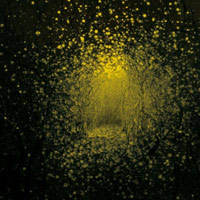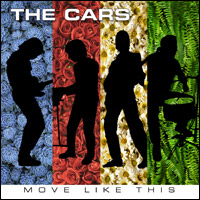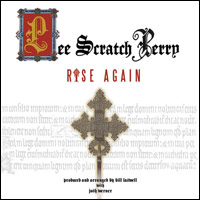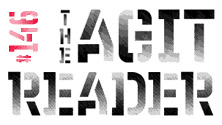
Burst Apart
Frenchkiss
With 2009’s Hospice, Peter Silberman, the primary creative force behind the bedroom project turned band, the Antlers, came into his own. That record’s harrowing emotional thread was sewn into 10 cathartic pop songs exploring life and death and the process of getting from the one to the other. It was a breathtaking work, the kind of album that most artists only have in them once, if at all.
Following up Hospice was sure to be no easy feat no matter how the band approached it. Recording on their own and introducing a bevy of new electronics to their sonic palette may not have been the logical next step, but one can’t argue with the results. Without an overarching concept, Burst Apart is every bit Hospice’s equal, and in some instances, its superior. Silberman has found his voice in every sense of the word; on songs like “French Exit,” which is layered in synthesizers and ambient street noises, he seems to be crooning, not from the end of his tether, but from a comfortable place, even as he sings lines like, “If I don’t take you somewhere else, I’m gonna pull my teeth right out.” To be sure, this batch of songs surges with same visceral wattage as Hospice, but the band has rewired their approach, incorporating oscillating synth sounds and generally working with greater subtlety. For his part, Silberman seems to know what to expect from his dreary subject matter. Even in delivering the lyrics to a song like “Putting the Dog to Sleep,” which is more about the death of a relationship than a pet, he sounds as resolved as he is distraught. It makes sense: the Antlers are older, wiser, and yes, better.
Stephen Slaybaugh

I Am Very Far
Jagjaguwar
Prolific Austinites Okkervil River are back after a relatively long hiatus, during which the band spent time collaborating with definitive psych-rock pioneer and former 13th Floor Elevators frontman, Roky Erickson. They made an album with the man, titled True Love Cast Out All Evil, which was produced by Okkervil’s own nominal leader Will Sheff, who has continued in that role for the band’s first full-length in roughly two and a half years, I Am Very Far.
The album is a departure from the neat, vaguely forced commotion of the band’s last few albums. It’s raw and gritty and gloomy, but brimming with spirit. The theme is less a reflection on pop culture or the music business in general (though such musings do play a large part throughout) and more the musical equivalent of letting their guard down.
From the raucous opener, “The Valley,” the band displays its maturation by painting newfound raw, chaotic musical portraits, accompanied by eloquent, vibrant stories in their lyrics (their name is a literary reference, after all). The song relates, like so many preceding tracks, the triviality of the rock & roll life, but this time, they mourn the “rock & roll dead” with ghastly metaphorical details (gunshots to the head, slit throats, etc.). With lyrics like, “Oh murderess in the wilderness, with your victims all around you, their combined love forms a pool your love’s reflected in” (on the comparatively mellow “Piratess”), it’s clear that this album will take a superbly sinister direction that’s not so much about life on the road as life on the skids.
The utilization and seamless amalgamation of surprising instruments—a toy piano on “Hanging From a Hit” or swarming choral voices on “Wake and Be Fine”—pushes the boundaries of the box that Okkervil has been placed in for the past few years. Each and every song seems to ooze with a desperate and intimate urgency, especially the finale, “The Rise,” a contemplative piano opus with haunting echoes and beautiful strings. The hiatus spent recording with the legendary Mr. Erickson appears to have taught the gentlemen (and lady) of Okkervil River to let go of certain inhibitions, and the end result is an album well worth the wait.
Jennifer Farmer
MP3: “Wake and Be Fine”

She Was a Boy
Tôt ou Tard
Yael Naim made a splash thanks to a Macbook Air commercial in 2008. She then went on to gain a little traction after that thanks to her meticulously arranged (by percussionist David Donatien) self-titled album. That release combined adult-contemporary gestures with worldly (but not too worldly) sounds. The songs sprinkled a little French here, a little Hebrew there, and had just enough taste to make it worthwhile listening on pretty, spring Sunday mornings. I myself added Ms. Naim to a playlist that included Madeline Peyroux, Cibelle and Juana Molina, and found it very pleasant while I read the New York Times book reviews.
Fast forward a few years, and Yael returns, singing all in English this time and sounding a good deal less lonely. She Was a Boy kicks off with the sprightly yearning of “Come Home.” She’s pleading for a lover or a friend to return, and given the calliope-like tone of the song, the conclusion seems pretty certain to be a happy one. She’s similarly peppy on “Go to the River,” though a good bit more quirky. That one sounds like music for some particularly twisted, though still really cute, little kids, or maybe a montage in one of Tim Burton’s animated features.
After a few listens, I find it hard to deny that Yael’s best work seems to come when she’s exhibiting less excitement and more patience. At least, these are the songs that fit best on my chanteuse playlist. “I Try Hard” is filled with longing; “My Dreams” slowly builds from sparse to lush; and “If I Lost the Best Thing” is appropriately intimate, like an incredibly quiet plea. On those tracks especially, Naim sounds fragile, earnest, and slightly tragic. For better or worse, that’s how we most like to imagine her.
Matt Slaybaugh

Move Like This
Hear/Concord
Even during this age of reunion fever there are some moments of sincere surprise. For example, the Police getting back together was a shocker, while the reformation of Faith No More seemed to be a fever dream. Add to the list of highly unlikely resurrections quintessential new wave rockers the Cars. Now, 24 years after their last record, the band has returned with Move Like This.
The story goes that Ric Ocasek was gearing up to work on a new solo record (his first since 2005) when he called up his former bandmates. And if you’re going to work with the Cars, you may as well be the Cars. Or perhaps Ocasek was just as bemused as the rest of the world by the short lived New Cars. Sure everybody loves Todd Rundgren and the Cars, but putting them together may not have been the move. Regardless of the reason, the seemingly implausible has happened.
Move Like This is the first time the band has recorded as a quartet. Singer/bassist Benjamin Orr died in 2000 from pancreatic cancer and keyboardist Greg Hawkes has taken on bass duties. The production was split down the middle with the band producing half and Garret “Jacknife” Lee producing the remainder. The result is almost, but not quite, classic Cars. The temptation always is to “modernize” when it comes to the comeback record. Thankfully the Cars resist that impulse and instead turn in a record that sounds like the next logical step.
Move Like This sounds like the exact Cars record you’d want. The synth lines are swirling and percolating; Ocasek is at his robotic rock best; and Elliot Easton’s guitar riffs are tastefully layered and thoughtfully arranged while David Robinson provides a solid backbeat of acoustic and programmed beats. However, where the album falls short is that there’s nothing as catchy as the Cars’ best work. The songs are lean and devoid of filler, but there’s nothing that inspires instant sing-a-longs. And while Ocasek is in fine form, the counterbalance of Orr’s vocals is missed. However, at the end of the day there’s a relief that this wasn’t an embarrassing return. Whether this is a one-off or continuation, Move Like This is a welcome chapter in the Cars’ story.
Dorian S. Ham

Rise Again
MOD Technologies
Have you seen Lee “Scratch” Perry lately? The man’s picture should be next to “shaman” in the dictionary. He has the type of face that inspires awe. Plus, pretty much every awesome genre of music can be traced back to the Upsetter in only a few steps, and he invented reggae and dub. With so many monumental achievements in an artist’s past, can present missteps be overlooked? Now, don’t get the wrong idea—Rise Again is a good record—it’s just that I think it might be impossible to reclaim the sound that came out of his backyard Black Ark studio, no matter how hard others try to help him. (In this case, legendary impresario Bill Laswell was at the controls.) This may not be fair, but it’s the truth. It’s not as if he’s some sort of folky, weed-addled savant that needs pop artists to lend him cred so that he can sell enough records to pay the bills. Just listen to “Hot Tip.” On Rise Again, though, it’s actually very easy to overlook the derivative musicianship the band provides behind Perry’s vocals. He’s just as strong as ever.
Rise Again has a positive message, one as Christian as some of the early soul-flavored reggae There’s plenty of lines about claiming Christ for Rasta and Jah and Selassie saves—all that. At points it gets a little modern dancehall and he lets the young guys, like TV on the Radio’s Tunde Adebimpe, take over the vocals a little too much. I guess he’s got to stay relevant with his core audience and perhaps he’s wary about pulling the leash too tight on his artists. Or maybe, like on “Dancehall Kung Fu,” they were just being silly? Drummer Hamid Drake overplays. He’s no Sly Dunbar, who appears elsewhere on the record. “Higher Level” has a great vegetarian screed, with the chorus “let there be light, see me clearly.” The real hits on this record take a few listens to ease into, and Perry always excels the slower and sparser the band plays. Yes, Scratch can be forgiven. He’s the Upsetter, for chrissakes, and that Black Ark burned down long ago, taking a one-of-a-kind sound with it.
Michael P. O’Shaughnessy
ALBUM REVIEWS
Fleet Foxes, Helplessness Blues
Gruff Rhys, Hotel Shampoo
Cat's Eyes, Cat's Eyes
Explosions in the Sky, Take Care, Take Care, Take Care
Times New Viking, Dancer Equired
Steve Earle, I'll Never Get Out of This World Alive
White Mystery, Blood Venom
Poly Styrene, Generation Indigo
Cass McCombs, Wit's End
tUnE-yArDs,
w h o k i l l
Ponytail, Do Whatever You Want All the Time
David Kilgour and the Heavy Eights, Left By Soft
The High Llamas, Talahomi Way
The Black Watch, Led Zeppelin Five
